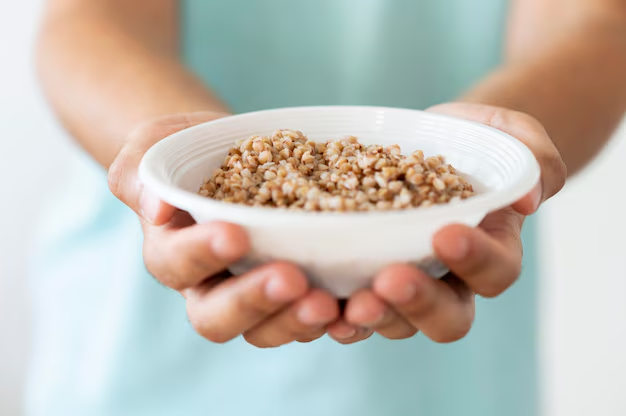How Long Do Chickpeas Stay Fresh in the Refrigerator?
Opening a can of chickpeas brings not only convenience but also a world of nutritious culinary possibilities. However, many of us find ourselves wondering how long they will last in the refrigerator once opened. If this question has you stumped, you're not alone. Understanding the shelf life of chickpeas once stored can help you enjoy them safely in your meals.
🌱 The Shelf Life of Cooked Chickpeas
Whether canned or home-cooked, chickpeas will only last for so long in your fridge. Let's explore this in detail:
1. Refrigerated Storage Duration
Canned Chickpeas: Once you've popped open that can, it's best to transfer your chickpeas to an airtight container. This ensures they aren't contaminated by air or other odors in the fridge. Stored properly, they can last for 3 to 5 days.
Home-Cooked Chickpeas: If you've prepared chickpeas from dried beans, they will typically last about the same amount of time, roughly 3 to 5 days when stored in an airtight container in the refrigerator.
2. Factors Affecting Freshness
Several factors can impact how long chickpeas remain fresh:
- Temperature Consistency: A stable refrigerator temperature is crucial. Fluctuations can accelerate spoilage.
- Container Quality: Airtight containers are vital for preventing odors and contaminants from affecting the chickpeas. Glass or high-quality plastic options are recommended.
- Refrigeration Timeline: The sooner you refrigerate them post-cooking or opening, the better for maintaining their freshness.
3. Signs of Spoiled Chickpeas
Not sure if your chickpeas are still good? Here are some signs to look out for:
- Odor: Sour or off smells indicate spoilage.
- Texture: Slimy or sticky textures mean they're no longer safe.
- Appearance: Mold or unusual discoloration should be a red flag.
🥙 How to Maximize the Shelf Life of Chickpeas
Maximizing the shelf life of your chickpeas is simple with these practical tips:
1. Quick Refrigeration
As soon as you've opened the can or finished cooking, let your chickpeas cool slightly and then refrigerate them promptly.
2. Proper Storage Containers
Invest in quality airtight containers to ensure no external air or contaminants can spoil them. Labeling your containers with the storage date can also be helpful.
3. Freezing Options
If you don't plan to use your refrigerated chickpeas within the given timeframe, freezing them is an excellent option. Here’s how:
- Spread the chickpeas in a single layer on a baking sheet to freeze them initially. Once frozen, transfer them to a freezer-safe bag or container. This method prevents clumping and makes portioning easier.
- Generally, frozen chickpeas can last up to 6 months or more, although they may start losing their texture and flavor over time.
🌟 Practical Uses for Stored Chickpeas
Once you’ve extended their shelf life, chickpeas can be a versatile ingredient in many recipes, adding both a nutritional punch and texture to your meals.
1. Salad Additions
Chickpeas are a great addition to salads, offering fiber and plant-based proteins. Pair them with fresh vegetables and your favorite dressing.
2. Hearty Soups and Stews
Their soft texture makes chickpeas a perfect ingredient for thickening soups or adding substance to stews.
3. Flavorful Hummus
Transform your stored chickpeas into creamy hummus. Combine them with tahini, garlic, lemon juice, and olive oil to create a perfect dip.
4. Snacks and Roasts
Roast chickpeas in your favorite spices for a crunchy snack. They can be seasoned sweet or savory based on your preference.
🍽 Chickpeas and Food Safety
Adhering to safe storage practices is essential to prevent foodborne illnesses. Here are key considerations:
1. Maintaining Cleanliness
Ensure that all utensils and containers used for storing chickpeas are clean and dry.
2. Regular Checks
Periodically check the storage conditions and the chickpeas themselves for any signs of spoilage.
3. Cross-Contamination Prevention
Avoid mixing chickpeas that have been refrigerated with fresh ones without checking their condition.
📝 Summary and Key Takeaways
Keeping chickpeas fresh and safe to eat involves understanding their shelf life and utilizing proper storage techniques. Here's a quick breakdown:
- Keep chickpeas in airtight containers to extend freshness.
- Check for spoilage signs: Unpleasant smell, slimy texture, or mold.
- Freeze chickpeas if you cannot consume them within 3-5 days.
- Add chickpeas to a variety of meals for enhanced nutrition.
- Ensure cleanliness in all storage practices to prevent spoilage.
Using these guidelines, you can confidently manage your chickpea supply without worry. By practicing safe storage, you not only reduce food waste but also enjoy the full nutritional benefits chickpeas have to offer.
Mastering the art of storing chickpeas can elevate your meal prep routine, providing you with a reliable source of nutrition ready to be used in countless delicious dishes. 🌟

